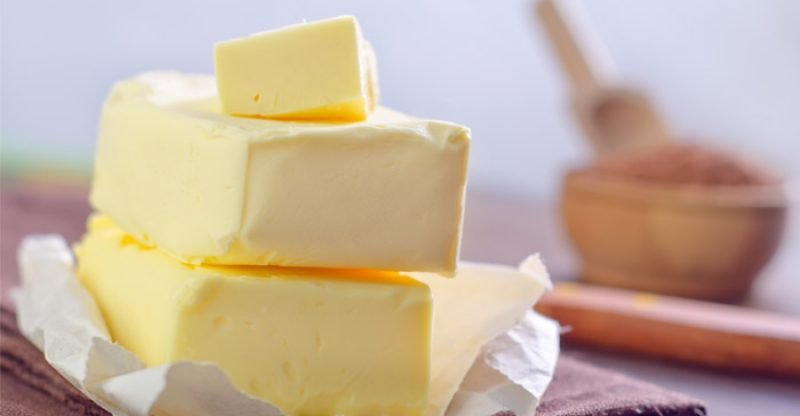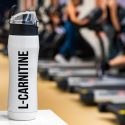What’s a Good Substitute for Butter?
For many cooks, butter is a staple, but there may be times when you cannot or should not use it in a recipe.
Fortunately, finding a good substitute for butter in your baking and cooking is easy.
Our guide to butter substitutes will help you create healthier treats and perfect recipes for your guests and family members with allergies and restrictive diets.
Why Is Butter Important in Baking and Cooking?
Butter’s most important contribution to baked goods involves making them light and fluffy.
It introduces air into baked goods, which creates the flaky texture.
Butter also releases moisture during the baking process, so it is important to the overall structure of your recipe.
Whether you use it for cooking or baking, butter has a unique flavor that enhances the richness of foods.
Does Using Organic Butter Make a Difference?
The debate over organic versus traditional ingredients is worth considering.
Is one of them healthier? If so, which one?
The label “organic” is not standardized in the US, so it can mean many different things.
However, it is worth seeking out butter from grass-fed cows.
Because of this animal’s diet of natural grasses, this type of butter has a higher concentration of omega-3 fatty acids (1).
Omega-3s are critical to your body’s ability to reduce inflammation, fight disease, and promote cognition.
In order to reduce fat and calorie consumption, all butter should be used in moderation.
However, butter from grass-fed cows shows more positive health impacts than traditional butter.
Why Should I Replace Butter?
Butter is a dairy product.
Whether you or your family suffer from allergies, lactose intolerance, or a restrictive diet for another reason, substituting other ingredients for butter may be necessary.
However, when considering butter replacements, you should always avoid highly processed foods.
In particular, margarine and vegetable oil should be avoided.
Neither adds significant flavor or texture to your recipes, and both often contain harmful trans fats (2,3,4).
Allergies and Intolerance
Anyone who is allergic to milk is usually sensitive to casein, the protein in milk.
While casein is only present in butter in small amounts, it can be enough to cause problems, especially in young children (5).
Butter also contains lactose, which is another problematic compound for some (6).
The lactose present in butter usually bothers people who are lactose intolerant, as it contains only a small amount.
However, if lactose intolerance is severe, using a butter substitute may be necessary.
Dietary Restrictions
Butter naturally contains a high amount of saturated fat.
However, our understanding of the scientific link between saturated fat and heart disease is still evolving (7,8,9).
We do know that the saturated fats present in butter raise cholesterol.
Therefore, it should be a limited part of your diet (10).
If you or someone you love is at risk for heart disease, has high cholesterol, or is concerned about saturated fat intake, a butter alternative may be necessary.
For those wishing to reduce calories, you may want to eliminate butter use, as it has a high caloric count.
Butter is not a nutrient-rich food source, so using a healthier, the more nutritious alternative may have other benefits as well (11,12).
What Can I Substitute for Butter in Baking?
There are several different fats with properties that are similar to butter, and each has unique benefits as a substitute.
Replacing butter with other ingredients in recipes is sometimes only achieved through trial and error.
Because any substitute you choose has different water or fat content, some substitutes will work well in some recipes, but not others.
So you may have to experiment.
To maintain the texture and mouthfeel of the original recipe, you may want to reduce the quantity of other liquids or additional flour.
Unless otherwise noted, the alternatives listed below should be substituted at a 1:1 ratio.
Olive Oil
Olive oil is an excellent substitute for butter.
However, it will not work as an alternative in recipes that require solid fats or utilize creaming, such as icing or pie crust.
Since olive oil has a unique and sometimes strong flavor, consider using it in recipes with strong flavors that will complement or mask it.
Good choices are muffins, spiced cakes, and other fruity and nutty confections, which should be substituted at a 3:4 ratio.
Coconut Oil
In baking, coconut oil is another great replacement for butter.
But because coconut oil has a distinct flavor, it may affect the flavor of your finished product.
For a stronger coconut flavor, use unrefined coconut oil.
Refined coconut oil has less coconut flavor, so it is a better all-purpose alternative.
Cocoa Butter
Cocoa butter is another alternative butter, which has the added benefit of being considered a healthy fat.
Because it is a solid butter, it can be used in many recipes that require solid fats.
Cocoa butter is high in antioxidants, and its high concentration of polyphenols may actually help lower the risk of cardiovascular disease (14).
In order to receive the most benefits, you will want to use pure cocoa butter with no additives.
Butter alternatives, such as coconut oil, olive oil, and cocoa butter, are excellent substitutes for butter in many baked goods.
But to compensate for the additional moisture, you will need to adjust the remaining ingredients.
Each of these substitutes works in specific situations, but they are not universal.
What are Some Other Substitutes for Butter?
Because each butter alternative has unique flavors, some are more appropriate for certain recipes.
Be sure to select a substitute that matches the flavor profile of your finished dish:
- Applesauce is a good substitute when your goal is reducing fat and calories. It adds natural sweetness, so be cautious about using additional sugars when using it as a substitute.
- Greek yogurt adds protein and a tangy flavor as a butter substitute. And your recipes will be more successful if you use the full-fat versions of this substitute.
- Pumpkins are high in antioxidants and other nutrients, and in some recipes, pureed pumpkin can serve as an effective butter substitute. Use this substitute in a 3:4 substitution ration.
- Adding mashed bananas will offer extra sweetness, other nutrients, and fewer fats and calories. Mashed bananas have a different consistency than butter, so to achieve the desired result, be sure to slowly incorporate it in small amounts.
- Nutrient-rich avocados provide many health benefits as a butter substitute, including healthy fats. If it is important to mask the color of avocados in your finished product, be sure to use them, along with dark-colored ingredients (such as chocolate).
- Peanut, almond, and cashew butters are nice additives to some recipes, but use caution, as they are heavy in calories and fat. Just a small amount could be enough to provide you with added flavor and the necessary fat content.
To find the right butter substitute, don’t be afraid to experiment with your recipes.
If you match flavors and adjust sweeteners, liquids, and flour, they will have the appropriate textures and flavors — based on the substitute you select.
What Can I Substitute for Butter as a Spread?
These substitutes are healthier than butter, are just as tasty, and have a spreadable consistency:
- Pesto is made with olive oil, garlic, and fresh herbs, which makes an excellent spread for bread and toast.
- Try some almond, peanut, or cashew butter on your crackers or toast.
- To spread on crackers or fresh vegetables, add herbs and pepper to ricotta or cream cheese.
- Mashed avocado can be spread on toast, then sprinkled with salt and pepper.
- Hummus pairs well with crackers, bread, and vegetables.
What Can I Substitute for Butter in My Cooking?
Butter is often used in recipes that include sautéing and browning meats and vegetables.
Many times, the sautéing step in a recipe does not require the fat or moisture of butter at all.
If you need a little moisture, add a tablespoon of water or broth.
If you need fat to help brown your food, use olive oil, avocado oil, or flaxseed oil.
Each option will provide a unique flavor to your food, and it will allow you to brown with ease.
Conclusion
With so many alternatives available, you should easily be able to remove butter from your recipes and meet your family’s health and dietary needs.
Experimenting with new recipes and alternatives will provide you with many options, which will help keep your family healthy and create delicious recipes that everyone can enjoy.
FDA Compliance
The information on this website has not been evaluated by the Food & Drug Administration or any other medical body. We do not aim to diagnose, treat, cure or prevent any illness or disease. Information is shared for educational purposes only. You must consult your doctor before acting on any content on this website, especially if you are pregnant, nursing, taking medication, or have a medical condition.
HOW WOULD YOU RATE THIS ARTICLE?






